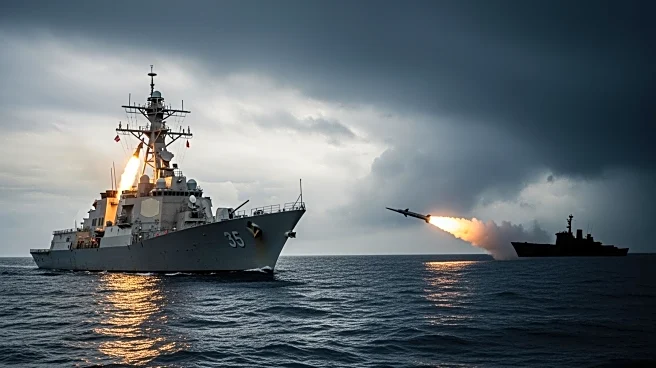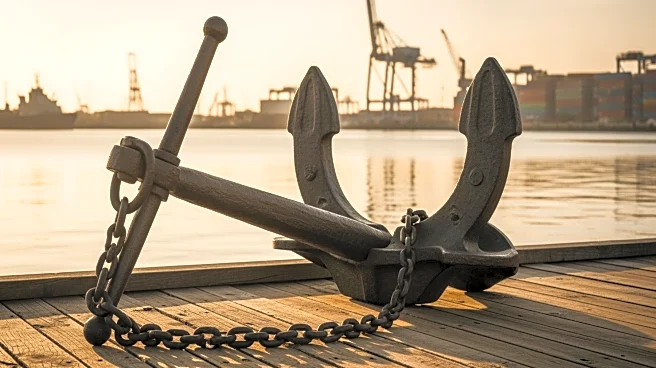What's Happening?
The U.S. Military has expanded its anti-drug operations by striking a suspected drug ship in the Pacific Ocean near South America. This marks the first such military action in the Pacific since the Trump
administration initiated a new anti-drug campaign. The campaign has previously led to seven strikes in the Caribbean, escalating tensions with Venezuela and Colombia. Details about the strike, including the number of people on board the ship, remain limited. The Pentagon has not yet commented on the incident. The U.S. has increased its military presence in the Caribbean, deploying guided missile destroyers, F-35 fighter planes, a nuclear submarine, and 6,500 soldiers. Legal experts have raised concerns about the military's involvement in these operations, questioning why the Coast Guard, the primary maritime law enforcement agency, was not utilized for interdiction efforts.
Why It's Important?
The military strike highlights the U.S. government's aggressive stance on drug trafficking, particularly in international waters. This approach could have significant implications for U.S. foreign relations, especially with countries in South America. The use of military force instead of traditional law enforcement methods raises legal and ethical questions, potentially affecting international perceptions of U.S. military operations. The decision to bypass the Coast Guard in favor of military strikes may also set a precedent for future anti-drug operations, influencing how the U.S. addresses drug trafficking on a global scale. Stakeholders, including legal experts and international partners, may push for more transparency and adherence to international law in such operations.
What's Next?
The U.S. government may face pressure to clarify its strategy and legal justification for using military force in anti-drug operations. International reactions, particularly from South American countries, could influence future diplomatic relations. The Pentagon's response to inquiries and any subsequent policy adjustments will be closely monitored by legal experts and international observers. Additionally, the effectiveness of these military operations in curbing drug trafficking will likely be evaluated, potentially leading to changes in U.S. anti-drug strategies.
Beyond the Headlines
The use of military force in drug interdiction raises broader ethical and legal concerns. It challenges the traditional roles of military and law enforcement agencies, potentially blurring the lines between defense and policing. This shift could lead to debates about the militarization of drug enforcement and its impact on civil liberties and international law. The long-term implications of such strategies may include changes in international maritime law and the role of military forces in non-combat operations.










